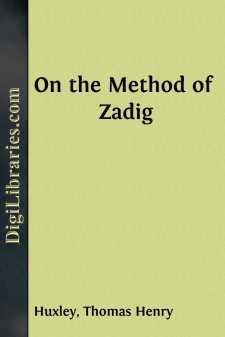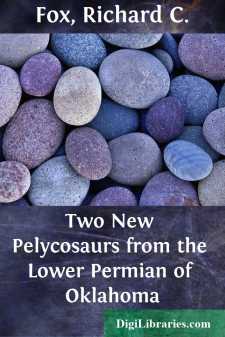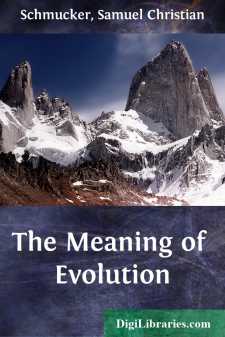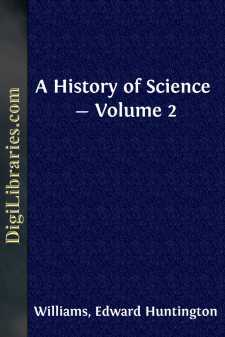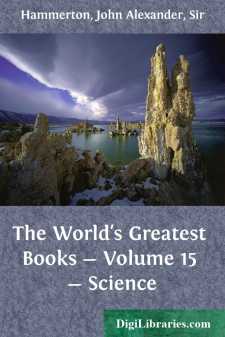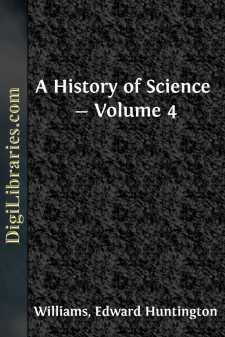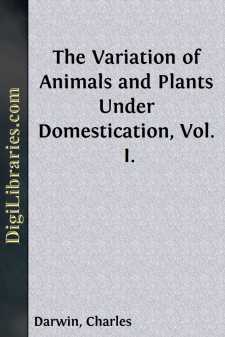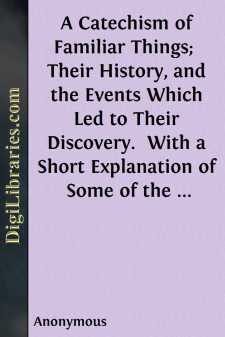Science
- Astronomy 18
- Biology 40
- Chemistry 13
- Electricity 1
- General 38
- History 6
- Light 1
- Paleontology 2
- Philosophy & Social Aspects 1
- Physics 3
- Relativity 2
- Study & Teaching 1
- Waves & Wave Mechanics 1
Science Books
Sort by:
It is an usual and a commendable practice to preface the discussion of the views of a philosophic thinker by some account of the man and of the circumstances which shaped his life and coloured his way of looking at things; but, though Zadig is cited in one of the most important chapters of Cuvier's greatest work, little is known about him, and that little might perhaps be better authenticated than...
more...
by:
Richard C. Fox
In the course of examining material from fissure deposits of early Permian age collected from a limestone quarry near Fort Sill, Oklahoma, the author recovered several tooth-bearing fragments of small pelycosaurs. The fragments were examined, compared with descriptions of known kinds appearing in the literature, and determined to be new genera within the Nitosauridae (Edaphosauria) and Sphenacodontidae...
more...
by:
Various
INTRODUCTORY NOTE Hippocrates, the celebrated Greek physician, was a contemporary of the historian Herodotus. He was born in the island of Cos between 470 and 460 B. C., and belonged to the family that claimed descent from the mythical AEsculapius, son of Apollo. There was already a long medical tradition in Greece before his day, and this he is supposed to have inherited chiefly through his...
more...
A FOREWORD Before my window lies an enchanting landscape. It embraces a stretch of open rolling country, beautiful as the eye could wish to rest upon. The sun with its slanting rays is not giving it heat enough in these winter months to make it blossom in its radiant beauty, but the mind goes easily back through the few brown months to the time when the field not far away was waving with its rich...
more...
V. GALILEO AND THE NEW PHYSICS After Galileo had felt the strong hand of the Inquisition, in 1632, he was careful to confine his researches, or at least his publications, to topics that seemed free from theological implications. In doing so he reverted to the field of his earliest studies—namely, the field of mechanics; and the Dialoghi delle Nuove Scienze, which he finished in 1636, and which was...
more...
Science JOHN MILNE BRAMWELL Hypnotism: Its History, Practice and Theory John Milne Bramwell was born in Perth, Scotland, May 11, 1852. The son of a physician, he studied medicine in Edinburgh, and after obtaining his degree of M.B., in 1873, he settled at Goole, Yorkshire. Fired by the unfinished work of Braid, Bernheim and Liébeault, he began, in 1889, a series of hypnotic researches, which, together...
more...
THE FORMATIVE PERIOD The best age at which to marry—Incompatibility of temperament—A happy marriage need not be a successful one—The evils of early marriage—The wedding night, its medical aspect—The honeymoon—When marital relations are painful—Times when marital relations should be suspended—The first weeks and months of wifehood—The formative period—A true marriage—A wife's...
more...
I. THE PHLOGISTON THEORY IN CHEMISTRY The development of the science of chemistry from the "science" of alchemy is a striking example of the complete revolution in the attitude of observers in the field of science. As has been pointed out in a preceding chapter, the alchemist, having a preconceived idea of how things should be, made all his experiments to prove his preconceived theory; while...
more...
by:
Charles Darwin
INTRODUCTION. The object of this work is not to describe all the many races of animals which have been domesticated by man, and of the plants which have been cultivated by him; even if I possessed the requisite knowledge, so gigantic an undertaking would be here superfluous. It is my intention to give under the head of each species only such facts as I have been able to collect or observe, showing the...
more...
by:
Anonymous
CHAPTER I. Dew, Water, Rain, Snow, Hail, Atmosphere, Wind, Lightning, Thunder, Electricity, Twilight, and the Aurora Borealis. What is Dew? Moisture collected from the atmosphere by the action of cold. During the day, the powerful heat of the sun causes to arise from the earth and water a moist vapor, which, after the sun sinks below the horizon, is condensed by the cold, and falls in the form of dew....
more...


